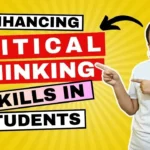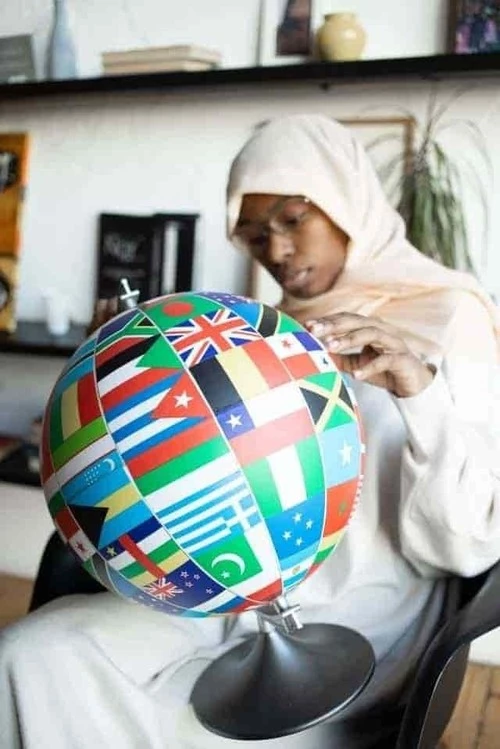“You must take ownership and leadership of tomorrow. For that to be possible, you have to strengthen your capacity and widen your vision as a global citizen.” – Ban Ki-moon
“I am often asked what can people do to become a global citizen? I reply that it begins in your own community.” – Kofi Annan
“Don’t ever forget that you are a citizen of this world, and there are things you can do to lift the human spirit, things that are easy, things that are free, things that you can do every day: civility, respect, kindness, character.” – Aaron Sorkin
The world we are living in is becoming more and more interconnected (and you have probably heard that phrase many times before). This global interconnectedness means that we need to learn how to be a part of this world. To be a part of this world, you can become a global citizen.
Let’s briefly remind ourselves what it means to be a global citizen. So, first, global citizens are those people who understand the problems and issues that exist in the world. Global citizens are creative and enterprising individuals, who make efforts to resolve these issues and make our world a better place for living. They are riding the wave of the world’s interconnectedness. And while they are immensely benefitting from their global citizenship, they are also making their own contributions. So, what steps can we take to become global citizens?
First – Learn a New Language
“Language shapes the way we think and determines what we can think about.” – Benjamin Lee Whorf
If you speak or if you are learning a new language, you are opening many doors for yourself. Learning a new language is one of the best ways to become a global citizen. When we learn a new language, we improve our communication skills. When we learn a new language, we also begin to get acquainted with new cultures and perspectives. You begin to appreciate new cultures and ideas.
In fact, there is research that supports the idea that people who learn new languages easily gain cross-cultural understanding, which is crucial to our thriving in the global world we are living in.
If you know other languages, you will better and enhance your understanding of other cultures. The reason why so many cultural stereotypes still exist is that people have a very poor awareness of the cultural realities in other countries. Whenever you learn a new language, you begin to realize why people from other cultures are the way they are. You also start to respect other cultures. Speaking a different language can also help you develop solidarity, tolerance, and acceptance of different things.
Second – Read, Read, and Read!
“Reading should not be presented to children as a chore or duty. It should be offered to them as a precious gift.” – Kate DiCamillo
There are numerous benefits to reading books and especially if you want to become a global citizen. With the help of books, you will be able to get to know new worlds, learn more about diverse cultures and get a unique insight into how people in other countries live. When we learn about other people’s cultures through books, we develop a deep understanding of how the whole world is working. And it is also important to note that if you want to be a global citizen you need to engage with literature from different parts of the world.
When you read books, you also develop empathy and gratitude. You begin to appreciate what you have. You realize that many people around the world are struggling. You learn that there are various social issues that make lives in other countries more difficult. You learn that in some countries, for example, children have limited access to education and even food. This knowledge helps you develop empathy and understanding that a lot needs to be done to make this world a better place for life.
Third – Volunteer!
“You make a living by what you get. You make a life by what you give.” – Winston Churchill
As we have discussed in our other Shiminly articles, being a global citizen is not only about benefits. It is also about many responsibilities. One responsibility that all global citizens share is their commitment to bring about positive change in the world around them. So volunteering is an excellent opportunity to start contributing to your community and helping the world.
Truth be told, if you want, you can volunteer in your country or hometown. If you have the right experience and knowledge, then you can probably start volunteering overseas. Not sure how you can volunteer? Well, there are many ways in which you can volunteer locally. First, you can get in touch with the local organizations that engage in activism or recruit volunteers. Probably they will ask you some questions to understand how your skills and knowledge can be of help. They will probably ask you about the skills you have and what exactly you would like to do as a volunteer.
Also remember that while you do help the wider community, by volunteering you are helping yourself too. To be more exact – when you volunteer you obtain a sense of purpose. You have a feeling of belonging to something. When volunteering, you are bound to meet new people and make new friends. You will improve your social skills as well. You will be able to network, and you will also be able to find a job if you want to and get paid. Finally, your physical and mental health will improve as well. So volunteering is highly beneficial for your personal and professional development.
Fourth – Develop an Awareness of the Issues in Your Community
“In order to stay relevant, you have to stay open to new trends and keep educating yourself. You have to keep evolving.” – Natalie Massenet.
Perhaps, you will realize that you did not even think that such issues exist in your community. These issues may include homelessness, environmental pollution, and climate change. Again, if you are not sure where you can start you can do the following.
First, you can investigate the content of local groups on social media. You can also see what your local newspapers write about. If there is a local community website, you can find useful information there. Also pay close attention to the leaflets that local organizations may place in local cafes, libraries, and supermarkets. You can also visit the websites of international charities such as Amnesty International and the International Red Cross. There is a lot of information there about their latest campaigns. Finally, you can just read the news, and this will also help you broaden your awareness of world events and problems.
Fifth – Travel to Other Countries
“The world is a book and those who do not travel read only one page”. – Saint Augustine.
Being familiar with the world is one important part of being a global citizen. However, it does not mean that you must travel very far. You can start by making road trips. For example, you can drive to a town adjacent to you or explore new places in your region.
If you can afford to travel overseas, then you should allow yourself to do that too. Travelling overseas can be expensive, but it does not necessarily have to be so. There are many ways to reduce the costs of your travelling. Here are some of them. In order not to spend too much money, consider resorting to low-cost airlines, buses, and trains. Try not to stay in expensive hotels and opt for options on Airbnb and couch surfing. You can also save money by cooking rather than always eating out.
So, as you can see there are many ways of becoming a global citizen. Apart from the advice that we have given in this article, there are, of course, other ways of becoming a global citizen. But all of them revolve around one basic premise – you need to be open-minded. You need to be inspired and you need to stay inspired consistently. You constantly need to educate yourself – about different countries, other people’s customs, traditions, and beliefs.
Russ Gadzhiev obtained his PhD in history and politics from University of Melbourne. He also holds a master’s degree in International Relations from Moscow State University of International Relations, a top-ranking diplomatic school. Russ is a strong education professional with a history of working in the higher education sector of Australia and effectively communicates with learners from diverse cultural backgrounds. He is enthusiastic about teaching and mentoring, writing, curriculum development, research, information management and public speaking. He is fluent in Russian, English, Spanish and Portuguese.




































